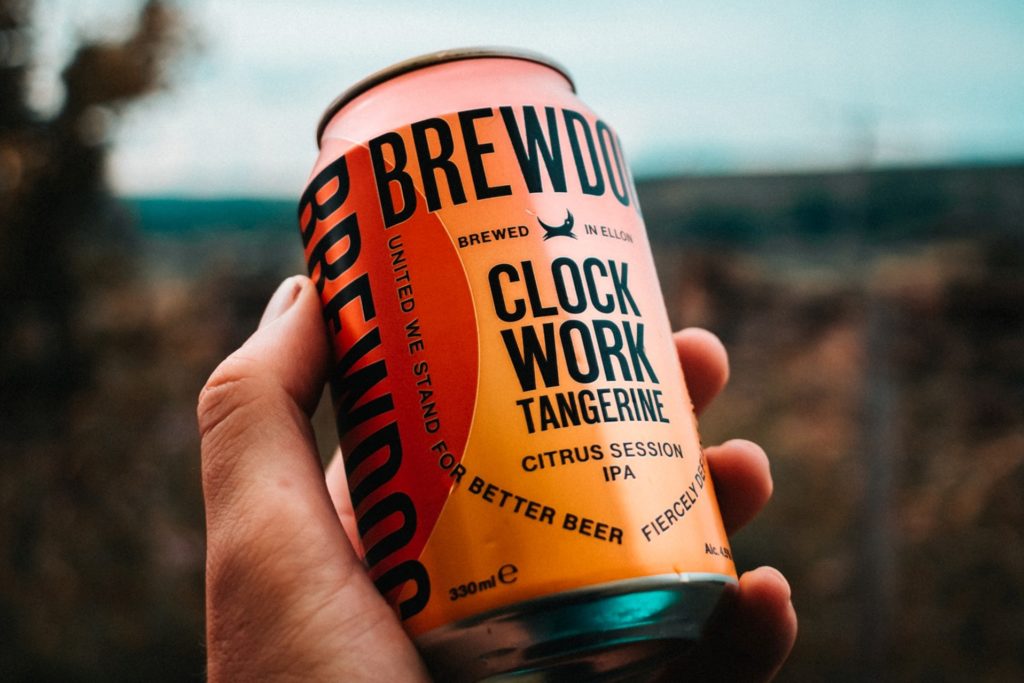What Brewdog Brewing Tells Us About the Florida ABT’s Role

Brewdog Brewing Asked About a Flaw in the Florida Beer Franchise Law
In 2020, Brewdog Brewing Company LLC (“Brewdog”) asked the Florida Division of Alcoholic Beverages and Tobacco (ABT) what the word “successor” means as used in the Florida Beer Franchise Law, Florida Statutes Section 563.022(16). At stake was whether would be bound to the distribution agreements that had been entered by Brewdog’s former Florida importer.
Brewdog initially operated a single brewery in Ellon, Scotland (“Brewdog Scotland”). Prior to 2015, Brewdog Scotland sold its branded products to a Florida licensed importer (“Importer”). Importer entered a number of distribution agreements with Florida licensed beer distributors, granting to those distributors exclusive franchises to distribute Brewdog products in Florida. In 2015, Brewdog established a brewery in Ohio (“Brewdog Ohio”), making and selling the same Brewdog products. Brewdog stopped selling the Brewdog products to Importer, because it now wanted to sell products made by Brewdog Ohio directly to Florida distributors.
Brewdog asked the ABT to issue a declaratory statement determining whether Brewdog was the successor to Importer for purposes of the Florida Beer Franchise Law. That section provides:
(16) AGREEMENTS BINDING ON SUCCESSOR.—A successor to a manufacturer that continues in business as a manufacturer shall be bound by all terms and conditions of each agreement of the manufacturer in effect on the date of succession.
Florida Statutes Section 563.22(16)
This statutory provision has a definitional problem. The Florida Beer Franchise Law defines manufacturer as “any person who manufacturers or imports beer for distribution to distributors licensed in Florida,” so Importer was clearly a “manufacturer” for purposes of Paragraph 16. But the law does not define “successor to a manufacturer.” In Brewdog’s situation, whether it was a successor to Importer is not at all clear or obvious. In fact, this question–whether Party 2 is a successor to Party 1–is likely to be unclear in many situations. Lack of clarity about when this provision does or does not apply is a problem for all parties involved. If the Florida Beer Franchise Law is intended to “promote the public’s interest in fair, efficient, and competitive distribution of malt beverage products by regulation and encouragement of manufacturers and distributors to conduct their business relationship toward these ends,” Florida Statutes Section 563.022(1)(b), Paragraph 16 fails to meet that intent.
Declaratory Statements – What They Are and What They Are Not
In the face of this uncertainty, Brewdog asked the ABT to answer the question: was it the successor to Importer or not? The ABT has the statutory duty to which “supervise the conduct, management, and operation of the manufacturing, packaging, distribution, and sale within the state of all alcoholic beverages and [] enforce the provisions of the Beverage Law. Florida Statutes Section 561.02. Accordingly Brewdog asked the ABT to issue a declaratory statement answering its question. In response, the ABT issued In re Brewdog Brewing Company LLC (DS 2020-045) Nov. 3, 2020.
Agencies are authorized by Florida’s Administrative Procedures Act to issue declaratory statements when requested by a person or company that is substantially affected by a state agency’s application of a state statute or agency rule. The petition for a declaratory statement must describe a set of facts and asks the agency to state how it would apply a statute or rule to those facts.
In Florida, declaratory statements are only binding on the requesting person or company and the agency in the context of the facts provided in the petition. A declaratory statement cannot be enforced on other parties or in any other circumstances. However, agency’s declaratory statements are valuable to everyone for two reasons. First, they provide a good indication of how an agency interprets and applies a statute or rule. Second, they can be persuasive (but not binding) authority for courts that are required to make a judicial ruling on application of the statutes or rules discussed in the declaratory statement.
The ABT’s Non-Answers and What It Means
In In re Brewdog Brewing Company LLC, the ABT refused to answer Brewdog’s questions whether a successor to Importer and subject to the requirements of Paragraph 16 of the Florida Beer Franchise Law. Brewdog’s request for a declaratory statement was denied.
The ABT gave three reasons for denying to provide a declaratory statement in this case. First: “While relations and agreements between manufacturers and distributors are subject to regulation under the Beverage Law, any determinations regarding a contract dispute or the rights of the parties are outside the [ABT’s] jurisdiction.” Second: “[Brewdog] did not include sufficiently particularized facts.” And third: “The [ABT] is unable to … issue a response to [Brewdog] that amounts to a rule.”
It is certainly possible to argue the strengths and weaknesses of the ABT’s reasons, but the bigger take-away is this: There are some problems within the Florida Beverage Laws that the ABT is unwilling to tackle. In these situations, the ABT would seemingly prefer parties like Brewdog and the distributors to resolve disputes privately or fight it out in the courts. The ABT does not take responsibility for correcting every flaw in the Florida Beverage Laws or arbitrating every application of the laws.
Do you have questions about the Florida Beverage Laws or the ABT? Contact us to schedule a consultation with a beverage attorney.
Because we’re attorneys: Disclaimer. Posted November 13, 2022.

